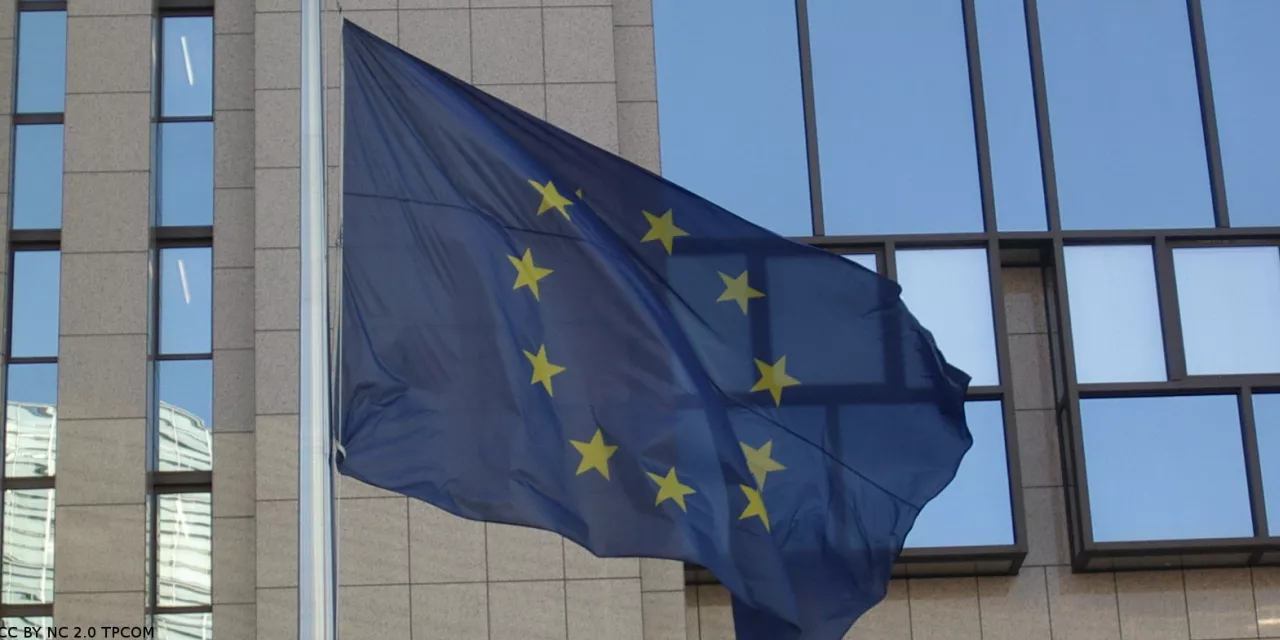EU Ministers Council

The BigBrotherAward 2008 in the “Europe/EU” category goes to the Council of the European Union (EU Ministers Council) in Brussels, represented by the Council’s President, Bernard Kouchner / Secretary General, Javier Solana.
The EU Ministers Council receives the Big Brother Award for the EU terror list, which is in their jurisdiction. In this list, numerous organisations and individual persons have been labelled as “terrorists” and placed under strict sanctions, leading to severe violations of human rights. There has been neither a democratic mandate for establishing this data collection, nor is it administrated with any democratic control. For a long time, the people affected have not even been given a legal hearing, let alone legal protection against this stigmatisation by the authorities.
Reacting to the 9/11 terrorist attacks, the EU passed a directive prohibiting all its member states, its public and private institutions and all EU citizens to give money or any other financial support to terrorist suspects and their organisations, or to engage in business with them. Since then, the EU Ministers Council keeps and continually updates a “blacklist” of suspected terrorists or alleged supporters.
The EU terror list is maintained by a secret committee at the EU Ministers Council. Decisions are made by consensus, while the evidence for a listing is mostly based on dubious intelligence provided by individual member states’ secret services. In any case, there is no independent assessment of cases on a basis of established facts — which is why the special investigator appointed by the Council of Europe, Dick Marty, has expressed with repulsion that he had “never experienced something as unjust as the compilation of these lists”, and called the procedure “a perversion”.
Marty has called the sanctions caused by a listing a “civil death penalty”, and in a 2007 report he explained in graphic terms what it means if somebody is placed on the EU’s (or the UN’s) terror list. These people are not notified, but as soon as they try to cross a border or access their bank account, they feel the consequences. There is no indictment, no official warning, no legal hearing, no time limit and no legal remedy against this measure. People who find themselves on the list are left with almost no chance of a normal life. They become almost outlawed, are politically outcast, economically ruined and socially isolated. Their complete assets are frozen, all accounts and credit cards suspended, cash seized, work and business contracts practically annulled. Neither wages nor social benefits are allowed to be paid, passports are cancelled, cross-border travel is refused, and state surveillance and investigation measures are put into practice.
All EU member states, all banks, business partners and employers, in effect every EU citizen is legally obliged to implement these drastic measures — otherwise they would be liable to prosecution themselves. To avoid that, many authorities and businesses use expensive special software to compare their records of customers, suppliers, and staff with the current terror lists.
EU special investigator Dick Marty finds the listing procedure very fallible. Out of mere suspicion or even mistaken identities, completely innocent people could end up on the lists, and then have to prove their innocence under the most adverse circumstances.
By using these terror lists in its “fight against terror”, the EU employs what could itself be called an instrument of terror out of the arsenal of so-called “enemy justice” — a special justice against alleged “enemies of the state” that violates human rights, deprives its victims of their legal position and isolates them in society. The draconian penalties are executed as a measure of prevention and outside the legal process, without law or verdict. A serial killer, says Dick Marty, has more rights than a person named on a terror list. The Parliamentary Assembly of the Council of Europe and the Advocate General at the European Court of Justice have now realised this, too.
Although listed persons are systematically deprived of their rights, some have now taken legal action at the European Court of Justice in Luxembourg. And there are cases where the court has ruled in favour of people or organisations, declaring their inclusion in the terror list and the freezing of their assets null and void. Their rights to a legal hearing and an effective defence have been severely violated, so the judges have found.
These people have now had their legal hearing, but this is being treated as an empty formality, since they have not had any actual remedy. They have not been taken off the terror list, nor have their assets been unfrozen or the sanctions withdrawn. In other words: the secret committees of the EU Ministers Council are continuing with their listing procedure, which remains undemocratic, they are not showing the slightest awareness of wrongdoing, and stubbornly insisting on their original assessment. The outcasts remain outcast — with all ensuing losses of liberty, in violation of the presumption of innocence and the European Convention of Human Rights. And without any expectation of redress.
Congratulations, EU Ministers Council, for this anti-terrorist masterpiece.
Laudator.in





